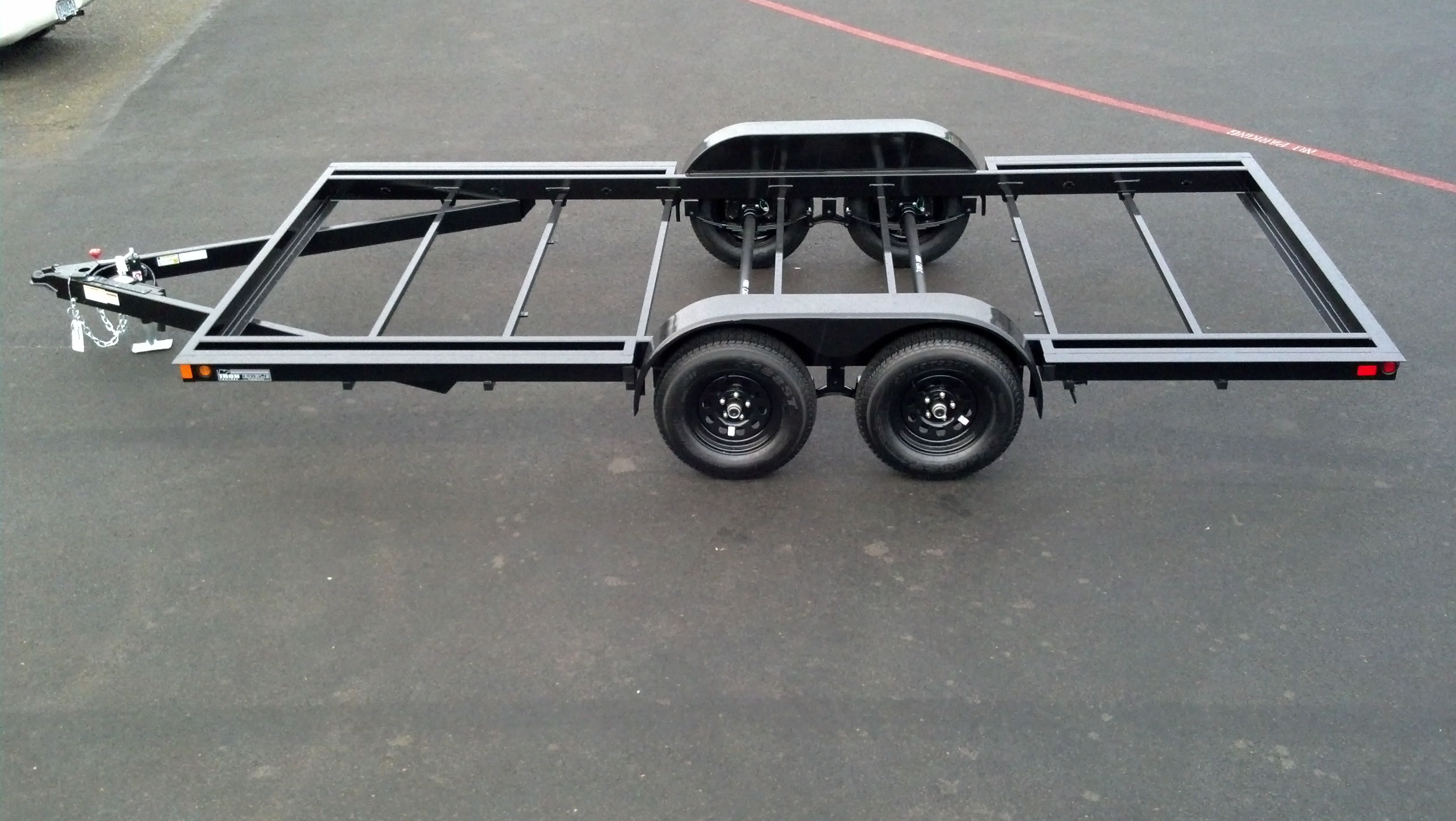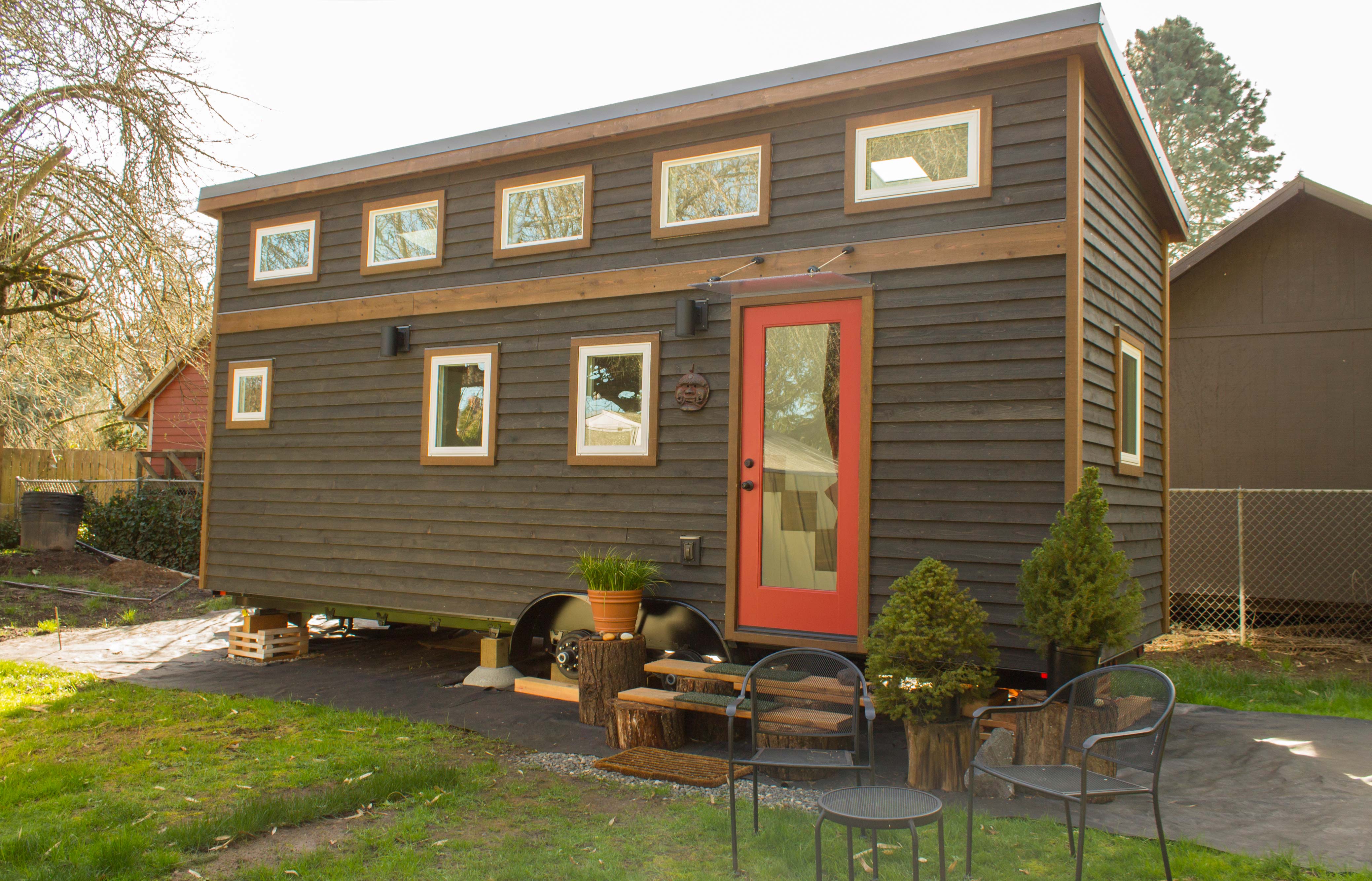
At PAD, we get a lot of questions about tiny house trailers – the foundation of your little house. Some popular questions include, “Which tiny house trailer should I buy?” (our answer: Iron Eagle!) and “Can you buy a used tiny house trailer?” Whether you’re planning to buy a new or used trailer, consider the following:
Can You Buy A Used Tiny House Trailer?
Your tiny house trailer is the most important piece of your project. We strongly recommend starting with a new trailer that’s designed for a tiny house. Although a used trailer will be cheaper upfront, a new trailer often ends up being the better bargain in the end both economically and psychologically. We recommend Iron Eagle’s Tiny House Trailers. They build a fantastic trailer just for tiny houses, based on years of experience working with professional and DIY tiny house builders. We know that for some folks, a new trailer just isn’t practical or attainable. There are good used trailers out there that will work well, but whatever you do, don’t go cheap on the trailer just to save a few bucks. You can always upgrade your appliances or your furniture or even your windows—but you can’t do much to improve your trailer once it’s built. It is the foundation of your home.
Tiny House Trailer Carrying Capacity and Dimensions

Depending on its size, your little house will likely weigh between 4,000 and 12,000 pounds – a wide range! If you’re using an existing design, your plans will probably indicate the expected weight of the basic design. Here are a few points of reference based on our designs:
- The 10 and 12 foot long Don Vardo Tiny House designs weigh around 3,200 and 5,000 lb, respectively
- The 16 foot long Sweet Pea Tiny House weights upward of 6,500 lb
- The 24 foot long Hikari Box Tiny House weighs nearly 10,000 lb
Try to plan for a couple thousand pounds of trailer carrying capacity beyond the expected weight of your house design. For instance, we recommend a carrying capacity of 14,000 lb for the Hikari Box. Interior finishes make a big difference in finished weight, and when you’re carrying a 10,000 lb house on a 10,000 lb trailer, it’ll be difficult to move safely.
If you’re not using an existing design with an established weight, we recommend that you get at least a 7,000 lb rated trailer for a house of up to 14 ft long, a 10,000 lb rated trailer for a house longer than 14 ft, and a 14,000 lb rated trailer for a house that’s 20-24 feet long. Macy Miller had to be very careful with her tiny house weight calculations and wrote a helpful blog post about it, for those blazing a trail with a new design.
Choose a trailer that’s 8½-feet wide, measuring to the outside of the fenders. The top deck sits about two feet off the ground, and the overall length varies, usually between 12 and 24 feet. Another great feature you’ll want is frame side extensions. A normal trailer with fenders will have a frame just under 7ft wide. Frame side extensions will extend the width to nearly 8-1/2.
Evaluating a Trailer for a Tiny House
- FRAME – Choose a solid frame that resists twisting and flexing. Here’s a quick test; simply stand on either front corner of the frame and observe what happens. A frame constructed of tubing shouldn’t twist at all making it the best choice. A frame constructed of angle iron is inherently flexible and should be avoided. A completed tiny house is a heavy load that requires firm support. A trailer frame that’s weak at resisting the twisting and flexing caused by the dynamic stresses of normal road travel, or the stress of static leveling blocks will transmit those stresses to the structure of the house. Needless to say, this is best to avoid.
- AXLES – If you’re buying a used trailer, have the wheel bearings inspected and repacked. There is some basic routine maintenance that needs to be done on all trailer wheel bearings and not knowing their condition is an unnecessary risk.
- TIRES – The trailer tires need to have a combined capacity rating that meets or exceeds the axle rating. They can’t be regular car tires. They must be tires designed for trailer use. There is a difference. Trailer tires are built for stability whereas car tires are built for a comfortable ride. Trailer tires can be identified by an “ST” preceding the tire size as in ST225/75D15. Remember, your little house could weigh between 2 and 4 TONS!
-
BRAKES – They are a must! Make sure the trailer has brakes on all 4 wheels. Some trailers are equipped with brakes on the rear wheels only and some trailers have no brakes at all. A tiny house on a trailer without brakes is unsafe.
- TOWING – A tiny house trailer frame by itself should weigh under 2000lbs. Once your trailer is fully loaded with your cute little house, it will have a total weight of up to 10,000lbs. You’ll need a full size truck to pull it. The truck will need to have a tow package that includes the connection for lights and brakes.
-
ROAD SAFE AND READY – To be street-legal, the trailer needs lights, brakes, safety chains, and must be registered with the DMV. If you’re buying a used trailer, make sure the seller gives you all the documentation (Signed off title, Bill of sale, etc.) required by the Department of Motor Vehicles so that you can license your trailer. Don’t buy a trailer without receiving documents. Getting your trailer licensed without the required documents will be a big problem
For more information about configuring the trailer so the little house can be easily bolted to it, check out our book Go House Go. Kate Goodnight, a PAD workshop graduate, also recently wrote this great blog post about picking up her trailer in Portland from Iron Eagle Trailers. It’s an awesome read and includes all sorts of helpful information about weight distribution and taking the big plunge into trailer ownership.
If you have really specific questions you don’t see covered, or if all these details are making your head spin, consider taking our 2-day Tiny House Basics Workshop. You can talk our ears off in person about whether you should buy a new or used tiny house trailer, how much weight your trailer should carry, and a whole lot more. The workshop covers tiny house design from top to bottom, talks trailer specifics in-depth, and lets participants just like you ask our experts exactly what they want to know.

Comments are closed.